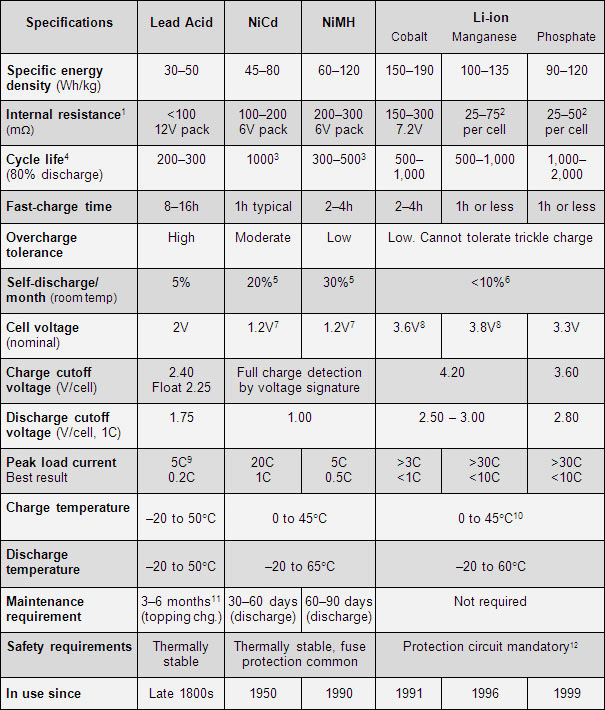There are a large number of battery parameters. Depending on which application the battery is used for, some parameters are more important than others. The following is a list of parameters that may be specified by a manufacturer for a given type of battery. For example, in a typical battery for a general car, the energy density is not relevant - a battery is a small fraction of the total battery weight and consequently this parameter would typically not be listed for a conventional car battery. However, in electric vehicle applications, the battery weight is a significant fraction of the overall weight of the vehicle and so the energy densities will be given.

| Parameter | Applications | Examples | Comments |
|---|---|---|---|
| Nominal Voltage | All | Usually standardized to 12V | |
| Battery Capacity | All | Given as a function of discharge rate | |
| Internal Series Resistance | High current applications | Running motors | |
| Self Discharge Rate | Applications that are only recharged periodically | ||
| Energy/Power Density | Mobile applications using significant amounts of battery energy | Electric vehicles, satellites, portable electronics, etc | |
| Cut-off voltage | Mobile applications using significant amounts of battery energy | Electric vehicles, satellites, portable electronics, etc | |
| Efficiency | Application in which charging is restricted or heat should be minimized | Stand-alone energy systems | |
| Depth of discharge | Applications which experience regular, deep discharge | Stand alone energy systems, traction batteries | |
| Temperature range | Applications which experience large variations in temperature | Stand alone energy systems, some transport applications | |
| Battery lifetime | All | Specified as either time or cycle life | |
| Maintenance requirements | All | ||
| Safety | All |
